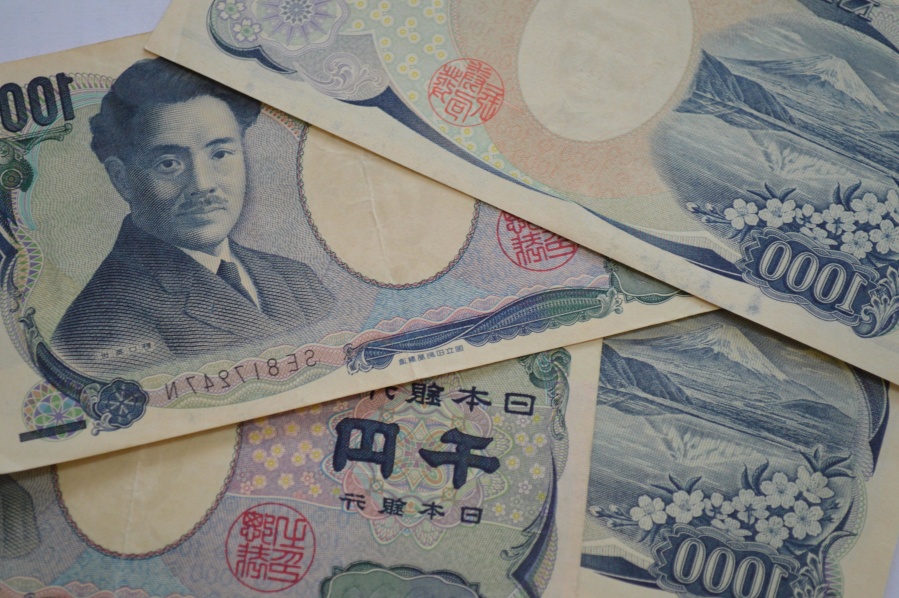Koichi Hamada, an emeritus professor of economics at Yale University, praised the Governor of the Bank of Japan, Haruhiko Kuroda, who is expected to remain in office after a five-year term in April.
Hamada also said that there are other highly qualified cadres who could take up this post.
According to him, it is critical that the next head of the Japanese Central Bank "have the courage and experience" and continued to follow the policy of abenomics, which combines huge monetary incentives and budgetary expenses. This, in turn, helped to weaken the Japanese yen and contributed to sustainable growth.
"Abenomics is perfectly governed by the policy of the Bank of Japan. If you win, you do not change the strategy," Hamada said in an interview with Reuters. According to him, the standard strategy is to continue working with Kuroda or any other person who will follow the abenomics.
In recent months, the Bank of Japan has slowed the pace of buying bonds, while maintaining the obligation to keep short-term interest rates at minus 0.1% and 10-year bonds yield of about 0% - these key parts of the yield curve management policy.
Earlier in January, the Bank of Japan retained its large-scale monetary stimulus program and left forecasts for inflation and economic growth unchanged. At the same time the regulator noted that inflation expectations have ceased to decrease, reports Bloomberg.
As expected, the interest rate on deposits of commercial banks in the Central Bank was maintained at minus 0.1%. The target yield of 10-year government bonds of Japan was left at about 0%.
Volumes of stimulating the economy also did not change. The regulator will continue to purchase assets at 80 trillion yen ($ 722 billion) per year.
Inflationary expectations remain more or less unchanged, the central bank said, while earlier it was noted that they are weakening. However, the risks to prices remain "shifted downwards."
The regulator maintained its economic assessment at 1.4% for the year beginning in April, and the forecast at 0.7% for the following year.
The Board of Governors also left forecasts of price increases unchanged. It is expected that inflation will reach 2% in the fiscal year, which will end in March 2020.
As the Japanese economy grows and inflation slowly but steadily accelerates, some investors began to bet that the Bank of Japan is approaching the moment when it begins to normalize its ultra-soft monetary policy.
Some economists expect an early tightening of the policy of the Bank of Japan. Almost half of the experts surveyed by Bloomberg believe that the regulator can take the first step on this path later this year.
Moreover, a minority of members of the Board of Governors of the Bank of Japan state the need for future discussions on the normalization of policies, although they agree that the incentive program should remain unchanged for some time, sources familiar with the discussions at the central bank told Bloomberg.
source: bloomberg.com
Hamada also said that there are other highly qualified cadres who could take up this post.
According to him, it is critical that the next head of the Japanese Central Bank "have the courage and experience" and continued to follow the policy of abenomics, which combines huge monetary incentives and budgetary expenses. This, in turn, helped to weaken the Japanese yen and contributed to sustainable growth.
"Abenomics is perfectly governed by the policy of the Bank of Japan. If you win, you do not change the strategy," Hamada said in an interview with Reuters. According to him, the standard strategy is to continue working with Kuroda or any other person who will follow the abenomics.
In recent months, the Bank of Japan has slowed the pace of buying bonds, while maintaining the obligation to keep short-term interest rates at minus 0.1% and 10-year bonds yield of about 0% - these key parts of the yield curve management policy.
Earlier in January, the Bank of Japan retained its large-scale monetary stimulus program and left forecasts for inflation and economic growth unchanged. At the same time the regulator noted that inflation expectations have ceased to decrease, reports Bloomberg.
As expected, the interest rate on deposits of commercial banks in the Central Bank was maintained at minus 0.1%. The target yield of 10-year government bonds of Japan was left at about 0%.
Volumes of stimulating the economy also did not change. The regulator will continue to purchase assets at 80 trillion yen ($ 722 billion) per year.
Inflationary expectations remain more or less unchanged, the central bank said, while earlier it was noted that they are weakening. However, the risks to prices remain "shifted downwards."
The regulator maintained its economic assessment at 1.4% for the year beginning in April, and the forecast at 0.7% for the following year.
The Board of Governors also left forecasts of price increases unchanged. It is expected that inflation will reach 2% in the fiscal year, which will end in March 2020.
As the Japanese economy grows and inflation slowly but steadily accelerates, some investors began to bet that the Bank of Japan is approaching the moment when it begins to normalize its ultra-soft monetary policy.
Some economists expect an early tightening of the policy of the Bank of Japan. Almost half of the experts surveyed by Bloomberg believe that the regulator can take the first step on this path later this year.
Moreover, a minority of members of the Board of Governors of the Bank of Japan state the need for future discussions on the normalization of policies, although they agree that the incentive program should remain unchanged for some time, sources familiar with the discussions at the central bank told Bloomberg.
source: bloomberg.com





